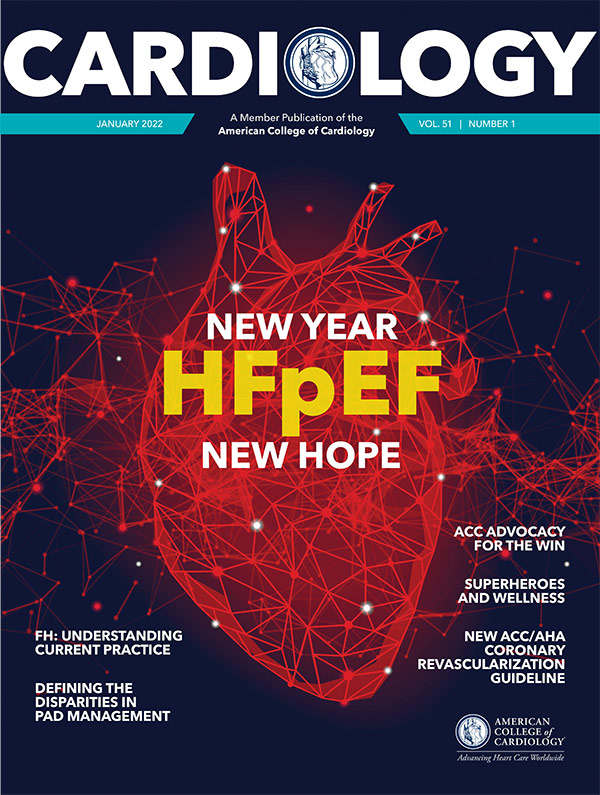The Pulse of ACC
Get Ready: Key 2022 Collaborative Maintenance Pathway Highlights
More than 1,600 clinicians took part this past year in the Collaborative Maintenance Pathway (CMP), the alternative maintenance of certification (MOC) assessment option delivered through ACC's SAPs – ACCSAP, CathSAP, EPSAP and HFSAP.
The CMP provides a streamlined path for refreshing knowledge, staying licensed and maintaining certification over a span of five years. Participants spend a minimum of seven hours engaging in relevant content tied to prespecified annual topics and then take part in a Performance Assessment (a 60-question online test) to demonstrate their mastery. A passing score on the Performance Assessment satisfies the MOC assessment requirement, eliminating the need to travel to a Board review course and allowing for more time with patients.
CMP topics for 2022 based on specialty are as follows:
- ACCSAP: Heart Failure; Pulmonary Circulation Disorders
- CathSAP: Cardiac Imaging and Assessment; Anatomy, Anatomic Variants, Anatomic Pathology
- EPSAP: Ventricular Arrhythmias
- HFSAP: Heart Failure With Reduced Ejection Fraction
To learn more about the CMP and enroll, visit ACC.org/CMP.
Just Announced: Global CV Experts to Take Center Stage at ACC.22
A stellar lineup of world-renowned cardiovascular experts will take the stage to lead discussions on topics ranging from health equity to cardiovascular research as part of ACC.22 in Washington, DC, in April. The just-announced list of speakers include:
Valentin Fuster, MD, PhD, MACC: Presenting the James T. Dove Keynote addressing "Contemporary Considerations in Quality For Cardiovascular Research."
Peter Libby, MD, FACC: Presenting the Eugene Braunwald Keynote looking at how "Inflammation Drives Atherosclerosis From Beginning to End."
Dariush Mozaffarian, MD, FACC: Presenting the 53rd Annual Louis F. Bishop Keynote looking at "Common Ground: What Do Heart Healthy Diets Have in Common."
Daniel J. Penny, MD, FACC: Presenting the Dan G. McNamara Keynote addressing "Team Building and Innovation Into the 21st Century."
Fatima Rodriguez, MD, MPH, FACC: Presenting the Douglas P. Zipes Distinguished Young Scientist Award Keynote looking at "Health Equity in Cardiovascular Disease Prevention."
Members on the Move Robert Califf, MD, MACC, Nominated As Next FDA Commissioner
ACC President Dipti Itchhaporia, MD, FACC, last week sent a letter on behalf of the College supporting the nomination of Robert M. Califf, MD, MACC, as commissioner of the U.S. Food and Drug Administration (FDA).
The letter to Sens. Patty Murray (WA) and Richard Burr (NC), chair and ranking member, respectively, of the Senate Committee on Health, Education, Labor, and Pensions called Califf the "right person to lead the FDA as commissioner based on his impressive medical knowledge, clinical research experience, and visionary leadership abilities."
Industry Advisory Forum Spotlights Health Equity
The ACC's latest Industry Advisory Forum brought together college leaders and industry stakeholders for in-depth discussions on the topic of health equity.
The day-long event included a deep dive into the ACC's overarching diversity and inclusion strategy from Industry Advisory Forum Chair and ACC Past President Mary Norine Walsh, MD, MACC. Walsh shared the ACC's metrics and goals for achieving diversity, equity and inclusion, including growing the pipeline of new and emerging cardiovascular clinicians and leaders. Additionally, current ACC President Dipti Itchhaporia, MD, FACC, and Health Equity Task Force Chair Paul L. Douglass, MD, MACC, provided an overview of ACC's current health equity efforts and led a panel discussion on opportunities to further prioritize health equity across all ACC activities.
Understanding social determinants of cardiovascular health and how partnerships and innovation can have an impact was also a critical topic of discussion led by Robert Roswell, MD, FACC, a member of ACC's Health Equity Task Force. Clinical care – or traditional health care – only accounts for 20% of an individual's health, noted Roswell. Social and economic factors (40%), health behaviors like tobacco use, diet and exercise (30%), and physical environment (10%) make up the rest.
"Solving for health equity is no easy challenge and it certainly can't be accomplished alone," said ACC CEO Cathleen C. Gates. "The ideas coming out of the Industry Advisory Forum are important as we work to move the needle and ensure we are transforming cardiovascular care and improving heart health for every patient.
Keywords: ACC Publications, Cardiology Magazine
< Back to Listings

